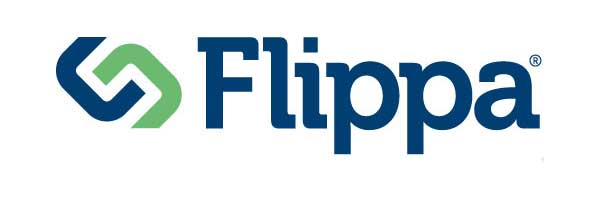Seven Useful Website Due Diligence Tips from Experienced Brokers and Buyers
I searched high and low across the great ocean that is the internet to find the best website due diligence tips and tricks.
There is a lot of information out there that I feel presents an overly optimistic view of investing in websites. It’s undoubtedly true that if you do it properly, website investing can generate pretty incredible returns – but on the other hand, if you do it poorly, there’s also a significantly chance that you’ll end up losing money.
While I did this search, I tried to find genuinely useful information about investing in websites – I avoided including sources of information that were clearly just trying to promote a product or service. In this round up of the top ten most useful DD tips from Brokers and Buyers, I’ve collected what I believe to be the most relevant and pertinent details regarding Due Diligence from a variety of reputable sources.
So, without further ado – let’s begin.
Experienced People
Tip #1: Check Archive History
Even though it seems like the site has been updated in a while, Experienced-People is one of the best places to read about website due diligence. The forums there are also a treasure trove of information even though the users there aren’t all that active. I highly recommend reading back on some older threads to see some of the things that genuine website buyers think about website investing.
The hosting of adult content, excessive pop-ups, drive-by downloads, spam, adware, viruses etc., can cause severe long term damage to a website. Don’t buy a site without researching the history of the domain.
Research involves going beyond checking just the home page of the domain but historical content of other pages of the site too. Handy trick: When you’re at a particular archive.org destination truncate the URL and replace with your chosen page.
For example, when you get to http://web.archive.org/web/*/newsite.com and replace the “newsite.com” with “newsite.com/links.htm” to read: http://web.archive.org/web/*/newsite.com/links.htm and you get to see what the links.htm page used to look like.
The most useful tip I found on the DD section of Experienced-People is to check the Archive history on a website that you’re looking at. It may sound basic, but you’d be surprised at how many listings I see on Flippa that are clearly newly repurposed expired domains. Some sellers try to pass of the links to the site as ‘genuine’ links as a way to demonstrate the ‘popularity’ of the site and its ability to ‘generate natural link’, when the truth is that all those links were inherited.
There’s nothing inherently wrong with building a site on an expired, high metric domain. However, if a seller claims that a site has been around for 5 years, when in fact the archive history shows you that the site in its current form has only been around for a few months – well, that’s a definite red flag.
FE International
Tip #2: Check for Undeclared Paid/Sponsored links

This post from FE International abou DD covers a lot of ground, and although some of the items on their DD checklist apply mainly to buyers of larger sites, a lot of it is actually applicable even to fledgling website investors.
In particular, I like what they recommend you do with regards to checking the backlinks to a website:
Even if traffic volumes look legitimate, the traffic sources may still require validation. It is important to look for any signs of paid or sponsored links that may not have necessarily been declared. For example, a well ranked website that has a number of links may seem good on paper, but in reality the seller may be paying (and not disclosing) thousands of dollars a year in sponsorship for the privilege. It is a good idea to evaluate the link profile in general (tools for this are outlined below) and examine how many back links have been added in the last six to twelve months and what the nature of these additions are.
This is important to take into account – it can sometimes be difficult to tell the difference between paid/sponsored links and natural ones. While it’s nearly impossible to check every single link (especially if the site you’re targeting is large), it’s probably advisable that you at least take a glimpse at a few of the most powerful links that are pointing to the site in question. More authoritative sites tend to label any sponsored posts/links, so if you see that on one of the pages that links to a site and the seller doesn’t mention the costs involved, make sure to ask them about it.
Flipfilter
Tip #3: Check for Shady Outbound Links
Here’s a DD tip from FlipFilter which I haven’t seen anywhere else.
I’ve recently experienced a ‘Google Slap’ (a sharp drop in rankings or complete removal due to non Google compliant practices) myself; the irony is, for all the Seo tricks I (may) have pulled in the past, this was a genuine oversight – some natural, but css-hidden text on inner pages of a site that I purchased … needless to say, I’d like to deliver a slap of my own to the previous owner.
Without scouring the entire site, it can be difficult to miss non compliant pages on a website you’re about to purchase, especially if you do not have an understanding of its code. Google has changed their systems and if the rumours are true, they are outsourcing human ‘quality’ checking of high ranking sites which mean sooner or later any (successful) wrong doers will receive the ‘remove or be removed’ email at which point, ranking would have already been lost.
One sad truth in the online business space is that there are plenty of unscrupulous types out there who won’t think twice about hacking a site and inserting links to other sites that can’t be seen by regular users. For example, one (relatively unsophisticated) way to do this is to add a link to a site in really tiny font.
These kinds of links aren’t always due to hackers injecting links – sometimes (but probably relatively rarely) webmasters will sell these kinds of links as an SEO service. Either way, regardless of whether the webmaster is aware of the issue or not, as a buyer, you should know about this kind of thing going in. Even if you’re still interested in the site after finding this kind of thing, you can comment on the listing with the information (and with your proof) – this could serve to push the price down whilst also protecting less experienced buyers.
Flipfilter recommends you download an SEO browser that can spot these kinds of dubious linking practices, so that you can protect yourself from a Google penalty in the future. Here’s a post on SearchEngineJournal that goes over these types of browsers.
Flippa
Tip 4#: Get on the Phone

This information about DD comes in the form of a video, so I’ll just recap the tip that I think is most useful.
The tip in the video that I think is most important is the first one – try to talk to the seller over the phone or on Skype. This may seem obvious, but I’m shocked at the number of people who don’t do this. In fact, I’ll come clean and admit that I’ve also been guilty of failing to get a seller on the phone.
A lot of people who are in the online business space aren’t big fans of having phone conversations, but remember – in this case, you’re the customer. If you were planning to buy a car, would you make an offer without first speaking to the seller? If not, then you should follow the same logic when buying a website too.
Customer Creation Equation
Tip 5#: Figure out whether a Site Exploits a Loophole or Provides Genuine Value
There is an infographic on this CustomerCreation Equation about Website DD that I think is pretty great – I don’t want to include it here without asking permission first, but you can see it if you follow the link above
Halfway down the infographic, it says ‘Does it depend on a Loophole’ – this is a really interesting point. I don’t personally make a distinction between ‘websites’ and ‘web businesses’ even though many others in the online business space do much this distinction. Instead, I classify specific strategies as risky and non-risky.
Risky strategies often rely on loopholes – for example, a lot of Black Hat SEO relies on exploiting perceived loopholes in Google’s algorithm. Another example would be sites that rely on paid traffic and promote a single affiliate offer – in the long run, as more people pay for that kind of traffic, the margins will slowly erode (or the product creator might figure out the strategy, run it him/herself and cut affiliates off entirely).
That’s not to say that I’m against buying sites that use risky strategies altogether. It’s just one more thing to consider when doing DD – you should know in advance of bidding/buying whether a site’s profitability depends on gaming the system.
Smart Passive Income
Tip 6#: Deep Dive into the Content
This is taken from Pat Flynn’s interview with Christ Guthrie from a few years ago. While the podcast episode, some of the advice that Chris gives on site buying is evergreen.
The other thing too is always look at the content itself. So if you’re looking at a site, say it’s on a Flippa marketplace, go to the site and actually read, get deep into the content. Don’t just read the content on the homepage. Look at all the other articles on the site and see if it looks like it’s written by someone that is knowledgeable about the topic or has correct grammar and knows about it, or you can easily tell if it’s been outsourced and not outsourced well.
(Thank god for transcripts)
The key point here is to read deep into the content on the site you’re prospecting. Checking out the front page isn’t enough – try to spend at least half an hour clicking internal links on the site to verify that the site is everything it claims it is. I wouldn’t put it past a motivated seller to update the front page with great content, when the rest of the content on the site is of poor quality.
SEONick/FE International
Tip 7#: Double Check the Actual Time Spent Working on the Site
This particular tip comes from an interview on the SEO Nick podcast. The guest was Thomas Smale, who co-owns the popular brokerage firm FE International which we mentioned already earlier on in this list. Thomas gives out a few more useful pointers here, and I definitely recommend you check out the interview, but the most useful tip that I found when reading through the transcript was this:
Obviously, if you’re buying a business, and they claim its 10 hours a week, you don’t want take over and find out it’s 60. Most entrepreneurs are guilty of doing. Most entrepreneurs will work 60 hours a week, but when their selling their business they say the work five. That’s, from a buyer perspective, something you want to verify.
This is probably the most common way that sellers mislead buyers – and often, they don’t even realize they’re doing it. A lot of the time, a seller will think that they are only spending a few hours a week, but they’re actually not including time spent on small tasks that add up – things like updating plugins, talking to VAs, responding to email enquiries – there are often a whole bunch of little tasks that individually don’t take up much time, but when you’re doing them all, it adds up.
While it’s always good to ask a seller how much time they spend on a site, I also encourage prospective buyers to come up with their own estimates before asking the seller. This way, not only is your guess not influenced by the seller’s answer, you can also use the question as a sort of litmus test to see if you feel like the seller is being honest or not. It also helps to break down a set of tasks and ask how long a seller spends on each one. For example, if they’re claiming that content only takes two hours a week, but they’re putting out three 1000 word posts per week, then chances are they’re understating the time spent.
I found this interview very informative, so I decided to include another useful quote that I pulled from the transcript.
Due diligence is a combination of objective fact-finding and subjective decision making. There’s no right or wrong way to do it. What one person sees as a risk another might see as an opportunity.
I wanted to include this to emphasize the idea that each person has their own decision making process – that’s the subjective part – but when you’re doing your due diligence, your first priority should be to get all the information you possibly can about a website. After you get all the information, then you can make a subjective decision, but the objective fact-finding should always come first.






Great article, George! Thanks for the multiple mentions – much appreciated and glad you found it helpful.
Hi Thomas, thanks for the comment, glad you liked the article. Keeping a close eye on your listings =)
Is there a way I can contact you through e-mail? I’ve got some questions for you. Thanks!!
Hi,
You can contact me at [email protected] for now. Need to get around to setting up my email for the domain.
Excellent article. This is a great resource that I will refer back to as I move forward. Thanks!
This is really very helpful for us to get a tips from expert brokers and buyers.